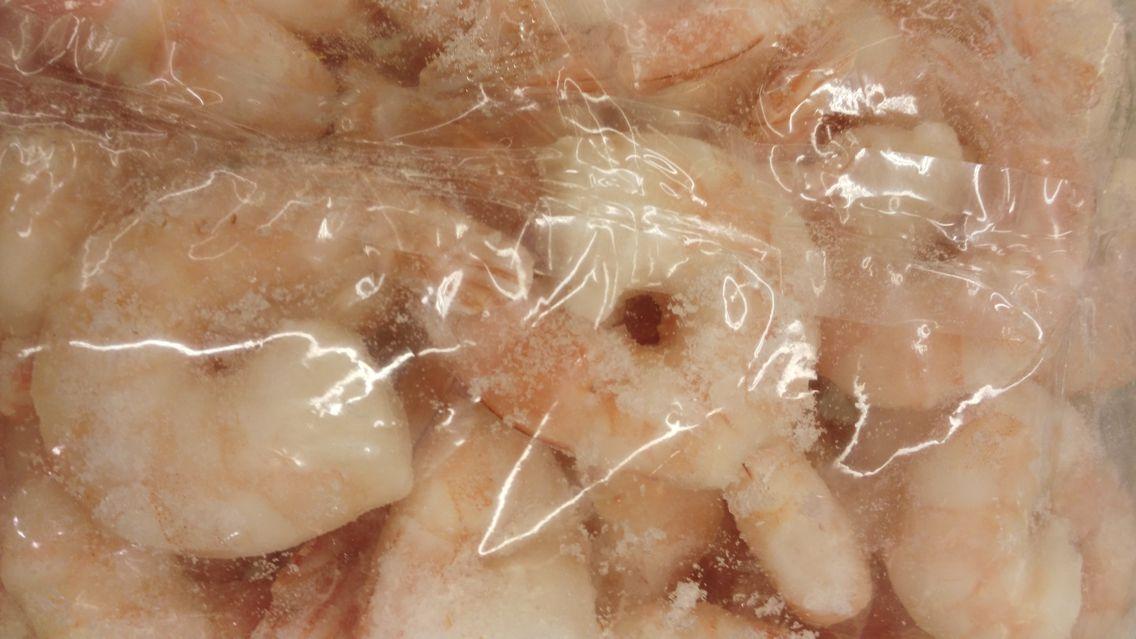
One of the big culprits is plastic. Whether still floating in the sea or lying on the bottom, the pollution of the seas has long been visible. Plastic, which breaks down into tiny particles over time, poisons sea creatures and therefore also us. Leonardo DiCaprio, for example, has been committed to saving the oceans for years. But in addition to the pollution of plastic waste, bycatch, overfishing, illegal fishing, corruption and the destruction of marine ecosystems are other major and, above all, sensitive issues in the fishing industry, which the Netflix film "Seaspiracy" rightly points out, because our seas are in danger.
But what should by no means be ignored is that there is another major problem in our seas, which unfortunately often remains hidden.
Underwater Factory Farming: The Solution to a Problem?
A total of almost 800 million people worldwide are dependent on the catching, production, processing and sale of fish and seafood. They play an important role in developing countries in particular, because for the people there, fish not only secures their income, but is also an important source of food.
Fish dishes are on the menu all over the world – not only in emerging and developing countries, but also here in Europe. The consumption of fish and seafood is so high here that Europe is dependent on importing it if it is to cover its own fish needs in the countries, because they would not be able to do it with the yields from their own seas alone.

A large demand creates an offer: factory farming - and therefore a big problem! In so-called aquaculture farms, large numbers of fish are raised, kept and multiplied in a controlled manner, primarily in order to satisfy the global demand for fish. The more money and time is spent on aquaculture operations, the more profit-intensive the owners naturally want to operate them. Conversely, this means that the protection and well-being of the animal is unfortunately put aside and profit is therefore the top priority.
Are aquaculture an ecological disaster?
In theory, these aquacultures are supposed to be the solution to overfishing, but in reality they do not necessarily help to curb overfishing of the world's oceans. One reason for this is, for example, the great need for feed that aquaculture entails. Around 20 million tons of wild fish are caught every year and some of them are processed into fish meal and oil, which in turn is mostly used as feed for the animals in aquaculture instead of meeting human fish needs.
Not only that, due to poor keeping conditions, but also due to stress, the fish are injured: the outbreak of diseases and the infestation of parasites is unfortunately now the rule in such aquacultures and no longer the exception. If too many animals are fattened at the same time, side effects can also occur. To counteract this, antibiotics and pesticides are used, among other things, which contaminate the water. And the more fish are kept in a tank, the more excrement, carcasses and leftover food come together in the water, which collect on the bottom and ultimately end up in other waters.
It is therefore important in the future to make these aquacultures better and more sustainable. If the focus is on animal welfare and the animals are raised in a way that conserves resources and the environment, aquaculture can enrich the fish supply and make a positive contribution to relieving wild fish stocks to replace the fishmeal and oil. Consciously avoiding fish and other sea creatures would be another effective step to protect and reduce pollution of the world's oceans, but a large number of people also depend on fishing and aquaculture. A blessing and a curse at the same time!
For more information, we recommend the following works:
Sources used: Bund für Umwelt und Naturschutz Deutschland, WWF, ÖkotestGala







